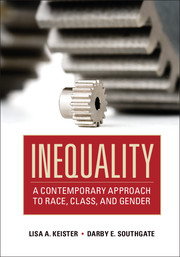2 - Explaining Stratification
Theories and Ideas
from I - Basic Concepts
Summary
We raised important questions in Chapter 1 regarding stratification and inequality, but we offered little explanation for those patterns. The objective of this chapter is to examine the major theoretical traditions in the study of inequality and to begin to apply these ideas to understand modern stratification.
As you read Chapter 1 and considered trends in inequality, you probably developed your own explanations for the patterns. Your explanations were based on facts learned through formal education and training, but they also probably were based on informal observations, experiences, opinions, and intuition. This is similar to what social scientists do when they provide theoretical explanations for social phenomenon such as inequality. However, social scientists organize their ideas and observations more formally within paradigms, or scientific points of view. In the Structure of Scientific Revolutions, Thomas Kuhn (1970) defined paradigms as the fundamental points of view that distinguish a science. Some well-known paradigms in the natural sciences include Einstein’s theory of relativity, Newtonian mechanics, and Darwin’s evolution.
Information
- Type
- Chapter
- Information
- InequalityA Contemporary Approach to Race, Class, and Gender, pp. 41 - 88Publisher: Cambridge University PressPrint publication year: 2012
